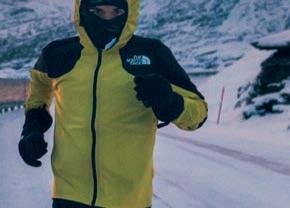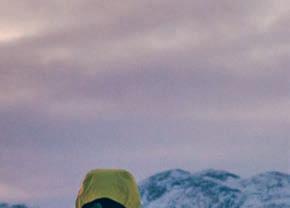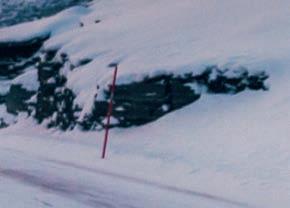
11 minute read
PAU CAPELL INTERVIEW




RUN LIGHT
PAU AND PEOPLE
Ultra-trail running is often thought of as a solitary sport. But there’s nothing lonely about life at the top for Pau Capell.
Among the long list of friends, family, and fans Pau Capell spoke to after winning the Ultra Trail du Mont Blanc (UTMB) in 2019, one name stood out. The Catalan athlete had just taken the biggest title in trail running by a country mile, leaving his nearest competitor, Xavier Thévenard, for dust at kilometre number three of 171, and fi nishing a full 45 minutes ahead of the three-time winner. In the circumstances, he might have been forgiven for forgetting to put in a call to his old family doctor. But eight years previously, Capell had made Dr Godall a promise.
“He said ‘wow, Pau, you did it’”, says Capell, laughing at the memory of their conversation. “You said ‘I want to win this race,’ and fi nally you’ve done it.” It had been Dr Godall who’d originally set Capell on the rocky path to trail running glory, albeit unintentionally. When he was 20, Capell, a promising young fi ve-a-side footballer who’d been selected for the Catalonian team, came to Godall with a knee injury that needed surgery. “He recommended me to run in the mountains to improve this problem after the operation,” the athlete explains, over Zoom from his family home in Sant Boi de Llobregat, a suburb of Barcelona.
Dr Godall couldn’t have known then, of course, that Capell would go on to become one of the best trail runners of his - or indeed any - generation. But if he was surprised to get a call from his old patient nearly a decade later, he shouldn’t have been.
Firstly, Capell is nothing if not determined. If he sets a goal like winning the UTMB he’s prepared to work for at least eight years to achieve it. Second, and perhaps more importantly, he has always been a people person.
Distance running has a reputation that dates back at least as far as The Loneliness of the Long Distance Runner, written by Alan Sillitoe in the 1950s, as a solitary sport. Ultra-running, and ultra-trail running in particular, tend to appeal to introverts - people who enjoy the meditative nature of pounding out long hours alone in the mountains. Set against these stereotypes Pau, now 29, is a breath of fresh air.
Talk to him about his motivations for running, and the fi rst thing he brings up is people. “For me, the most important thing of all is to have family and friends close to me,” he says. “In all of my races, my family come, my friends come. For me this is really important - when you are without strength, these are the people who say ‘come on, you can do it’ and because you love them, you think ‘yes, I can.’”
It’s not just the people cheering him on who Pau relies on either, it’s his fellow competitors. “I am a really competitive guy and I need to compete to be performing. When I don’t compete, then my performance suff ers, because I don’t have this test.” It’s perhaps no surprise that before he accidentally stumbled on trail running, Pau’s passion was for more sociable sports - not just football, but tennis too, which he played to a high amateur level. But after that fateful fi ve-a-side injury, he realised that running just “felt amazing”.
“I have always played sports, but the feeling when I ran in the mountains, it was totally diff erent,” he says. “I was like, ‘I can’t stop now’.” So he didn’t. In 2013, just one year after his knee injury, Pau raced and won his fi rst trail event. His rise from there was nothing short of meteoric. In 2014, he won the 103km Ultra




Sierra Nevada and the 112km Ultra Trail Mallorca; in 2016, he claimed fi rst place in the TDS (120km), and the Ultra-Trail Australia (100km); in 2017, he won the fi rst of what would be four titles in a row at the 120km Transgrancanaria; in 2018 he was crowned Ultra Trail World Champion for the fi rst time, and in 2019 he repeated the feat, topping it all off with that recordbreaking run at the UTMB.
But what does a runner who lives for camaraderie and competition do when the world stops, when all races are cancelled, and when he’s forbidden from seeing many of those closest to him? “I’ll be totally honest, it was very diffi cult to fi nd the motivation,” he says. “I think that sport is like life - when you wake up, you need to know why you wake up, you need to have some plans to organise your day. When you’re in a lockdown and the races are cancelled, you think ‘pff ff , OK, now, I’m an athlete. What I can do?’”
He whiled away some of the long hours organising #YoCorroEnCasa, a virtual running challenge with friend and fellow Catalan trail running star Kilian Jornet. “We earned over 80,000 euros for one association [to help] Coronavirus in Spain,” he says. But it wasn’t until he and his sponsors at The North Face came up with Breaking 20 that he really felt like he really had something he could sink his teeth into. If the UTMB wasn’t going to be organised as a race, he decided, then he’d just have to run it by himself.
Inspired by Eliud Kipchoge’s Breaking2 attempt, Capell aimed to complete the same 171km course on which he’d won in 2019 in under 20 hours. Making it would involve shaving a full 20-minutes off his time from the previous year, already a course record. It would have been a monumental achievement even in a normal year, but after the enforced training interruptions of lockdown, and without any competitors to spur him on, it proved too much.
Not making it was “very hard,” he says. “I was in the time, but at kilometre 130, more or less, I started to feel ‘it will be diffi cult’.” If Pau needed further proof that running alone was not his strongest suit, then this was it.
Exhausted, emotionally drained, and knowing he’d missed his target, he nevertheless completed the course, and once again, he credits his people with getting him through it. “You get to Trient and there are maybe 70 people encouraging you. These people are family, friends, friends that came from Barcelona, from diff erent cities, and they came to help me. Then I thought, ‘OK, the time is really important, but I think that this project is not only about the time. It’s more than this. In a diffi cult year, we have created something to inspire people.”
If the attempt helped him reach out to his fans at a troubled time, it created other connections too. “Just before Breaking 20 Eliud [Kipchoge] sent me a video.

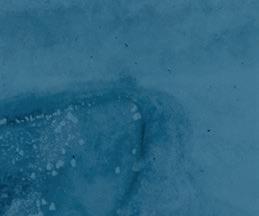
PAU’S KIT BAG
TNF FLIGHT VECTIV TNF FLIGHT BALL CAP
“The carbon plate in these shoes, and the position of your body and your foot when you’re wearing them powers you forward. Put them on and you just feel ‘I’m going to run.’” “I switched to a North Face cap recently, and this is my favourite.” The FlashDry fabric and mesh side panels help wick moisture from your head, keeping you cool.
THE NORTH FACE FLIGHT RACE DAY VEST 8
“When you run, you want to feel free. You don’t want anything to disturb you. This vest doesn’t - it’s really light and you can put all the things that you need out on the trails.”










I watched it 10 minutes before I started running. He was telling me ‘Pau, come on, you can do it, humans have no limits’. I was impressed, because we hadn’t spoken before.” The contact led to an invitation to go and train with Kipchoge out in Kenya earlier this year, where the older athlete (who of course failed in Breaking2, only to succeed on his second attempt to break the two hour marathon barrier) off ered some wise words. “He’s diff erent,” says Pau, “he has a special aura, a special atmosphere that you can feel when you meet him.”
“Diff erent” is a description he also reserves for his friend Kilian Jornet. When he won the UTMB, the Dauphiné Libéré, France’s mountain newspaper, ran the frontpage headline “Capell, l’autre Espagnol de l’UTMB” (“Capell, the other Spaniard of the UTMB”). But when I ask about the frequent comparisons between the two, he demurs. “I trained every day for eight years to win the UTMB. Kilian has diff erent capacities. I can compare with normal athletes, because I’m normal, but with him, it’s like if soccer players want to compare [themselves] with Messi. I’m sorry, Messi is not normal, Messi is diff erent, so you can’t compare.”
Yet in his own determined way, Capell is leaving a mark that may prove every bit as indelible as Jornet’s - not just on their sport, but on the wider outdoor culture. In November 2019, he topped off his annus mirabilis with a project called Run for the Arctic. “Two years before, I saw a documentary about polar bears in the Arctic which said they needed to move 250km further than normal to fi nd food.” He decided to run the same distance across Northern Norway, to show how far it is, and raise awareness of climate change. “Humans are destroying the world,” he says. “I wanted to show what’s happening in this




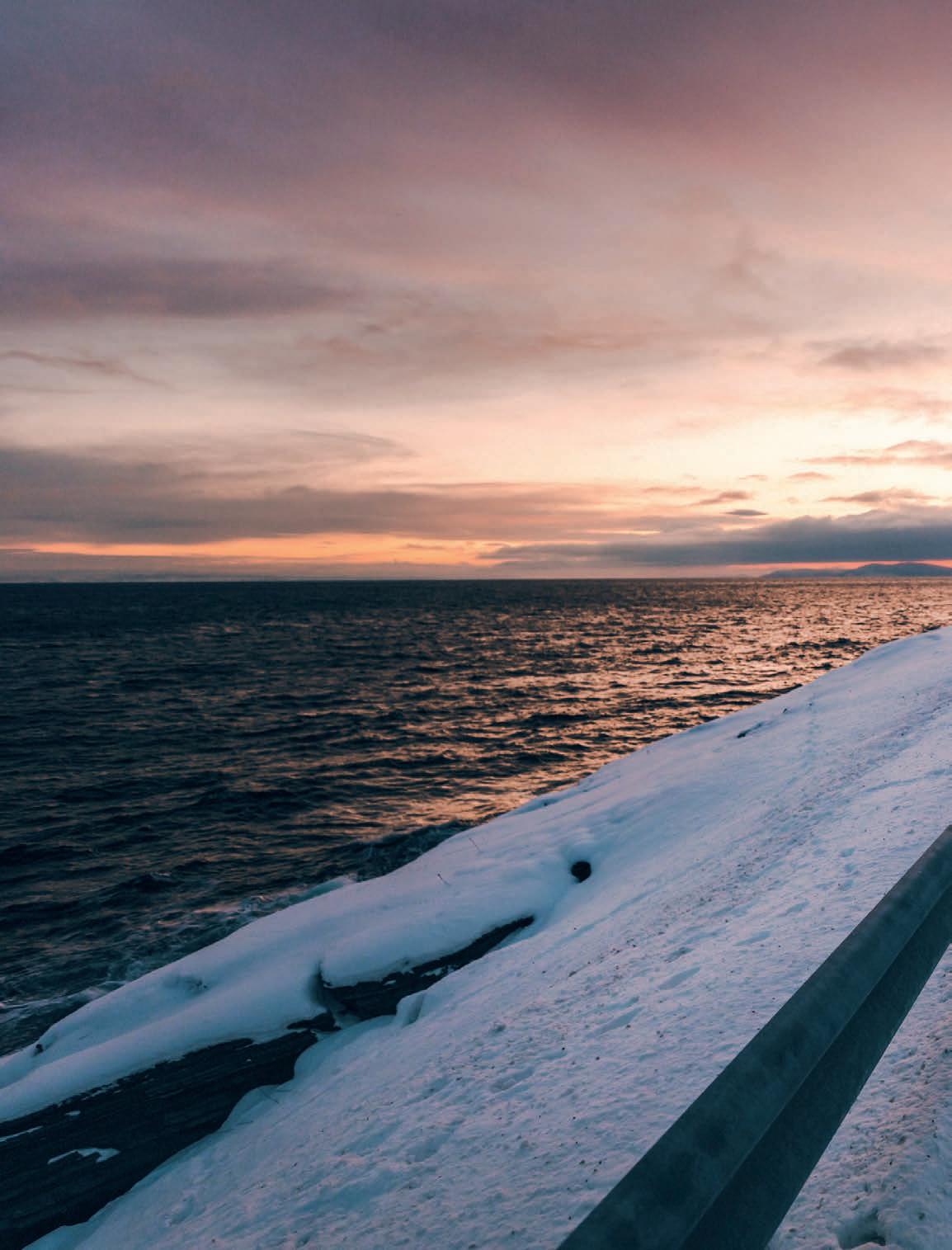
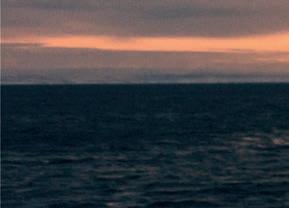



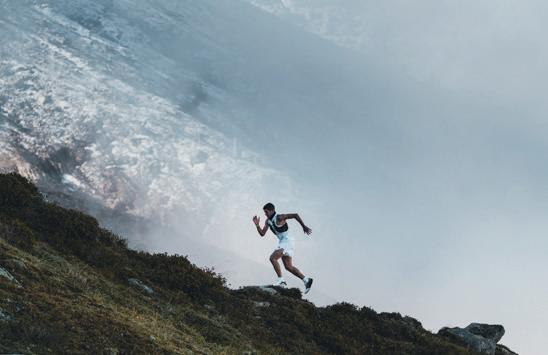






distance, what is the suff ering that the bears [must endure]. So I’m going to suff er, running in the zone of the bears.”
As a way to leverage his own, considerable online infl uence, and raise awareness of an issue that doesn’t often intersect with the world of running, it was hugely eff ective. It’s something that Capell will continue to campaign on in the future too. “This situation of climate change needs to start [being solved] from the top,” he says. If there’s one positive he takes from a pretty abysmal 2020, it’s that perhaps people’s eyes might have been opened to the need for change.
“Everything has stopped, but we needed it to stop,” says Pau. “The world was moving too fast - industries, the economy, and the people were moving too fast, working all day, everyday. Now the world has stopped, and it’s time to think about all the sh*t we were doing. Now maybe we can change a little bit.”
Hearing a professional runner suggest that everyone needs to slow down might sound strange. But when it comes to the health of the planet and the wellbeing of its population, he’s undoubtedly got a point. Pau Capell might be on course to become one of the greatest ultra-trail runners of all time, but as Dr Godall would tell you, he will always put people fi rst.



